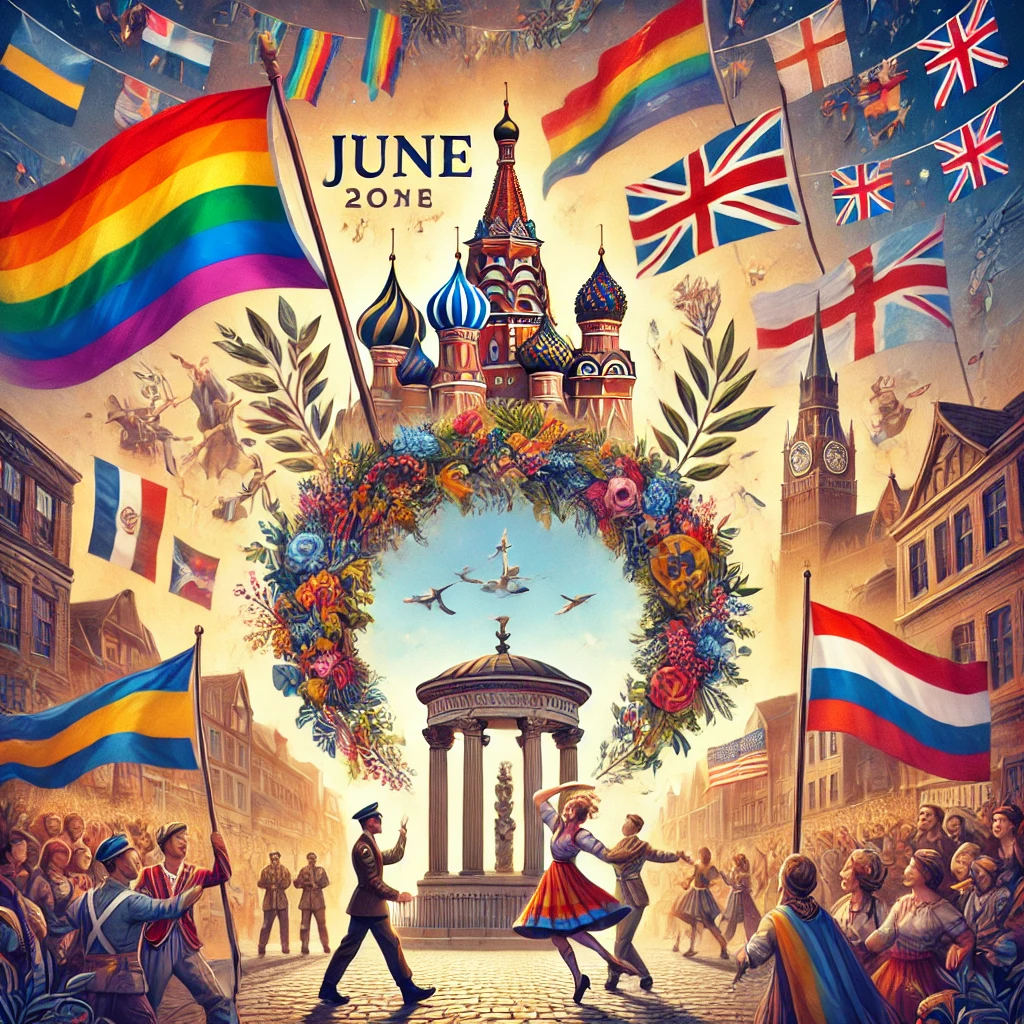Introduction
June is a month that radiates warmth, not only because of the summer sun but also due to the plethora of celebrations and events that take place worldwide. From cultural festivals to significant historical commemorations, June offers a diverse array of activities that bring people together in joy, reflection, and unity. This article delves into the various celebrations observed in June, highlighting their importance, origins, and the unique ways they are celebrated across different cultures.
The Significance of June in Various Cultures
June is a month deeply embedded in the calendars of many cultures. In the Northern Hemisphere, it marks the arrival of summer, with the summer solstice being one of the most celebrated events. The solstice, which typically falls around June 21st, is the longest day of the year and has been celebrated since ancient times by various civilizations, including the Druids at Stonehenge, who considered it a sacred event.
In addition to the solstice, June is also known for its various cultural and religious celebrations. For instance, Pride Month is celebrated globally in June, honoring the LGBTQ+ community and commemorating the Stonewall Riots of 1969. Cities around the world host Pride parades, festivals, and events to promote equality and celebrate diversity. Another notable event is Father’s Day, which is observed in many countries on the third Sunday of June, paying tribute to fathers and father figures for their contributions to their families and society.
Major Historical Events Commemorated in June
June is also a month of significant historical commemorations. One of the most notable is Juneteenth, observed on June 19th in the United States. Juneteenth commemorates the emancipation of enslaved African Americans and is recognized as a day of reflection and celebration of freedom and equality. The history of Juneteenth dates back to 1865 when Union soldiers arrived in Galveston, Texas, to announce that the Civil War had ended and enslaved people were now free. Today, Juneteenth is celebrated with community events, educational programs, and cultural activities that honor African American history and culture.
Another important event is D-Day, commemorated on June 6th. D-Day marks the Allied invasion of Normandy during World War II, a pivotal moment in the fight against Nazi Germany. The anniversary of D-Day is observed with ceremonies, reenactments, and educational events, particularly in France and the United States, to honor the bravery and sacrifice of the soldiers who participated in the invasion.
June Festivals Around the World
June is a vibrant month full of festivals that showcase the rich cultural heritage of different regions. One such festival is Midsummer, celebrated in Scandinavian countries like Sweden and Finland. Midsummer festivities often include dancing around the maypole, singing traditional songs, and feasting on seasonal foods like herring and strawberries. The celebration of Midsummer is deeply rooted in ancient pagan traditions and is one of the most important holidays in these countries.
In Japan, June is marked by the Gion Matsuri, one of the most famous festivals in the country. Held in Kyoto, Gion Matsuri features elaborate processions with beautifully decorated floats, traditional music, and dance performances. The festival has a history of over a thousand years and is dedicated to the Yasaka Shrine, with the aim of warding off disease and disaster.
The Modern Relevance of June Celebrations
The celebrations and events that take place in June are not just about honoring the past; they also play a crucial role in shaping the present and future. For instance, Pride Month has become a powerful platform for advocating LGBTQ+ rights and fostering acceptance and inclusion in society. Similarly, Juneteenth has gained increased recognition in recent years as a symbol of the ongoing struggle for racial justice in the United States.
Moreover, June celebrations often serve as a means of bringing communities together. Whether it’s families gathering for Father’s Day, citizens participating in Pride parades, or nations remembering the sacrifices of soldiers on D-Day, these events foster a sense of unity and shared purpose. They remind us of our collective history, the progress we have made, and the work that still needs to be done.
Conclusion
June is a month that encapsulates a wide range of human experiences—from joy and celebration to reflection and remembrance. The diversity of events and festivals observed in June highlights the richness of our global culture and the importance of coming together to honor our shared history and values. As we participate in these celebrations, we not only pay tribute to the past but also contribute to the ongoing narrative of our communities and the world at large.
In conclusion, the month of June stands as a testament to the enduring power of tradition, the importance of historical memory, and the vibrant diversity of global cultures. Whether through the joy of Midsummer dances, the solemnity of D-Day commemorations, or the pride of LGBTQ+ parades, June offers something for everyone—a time to celebrate, remember, and look forward to the future with hope and determination.


